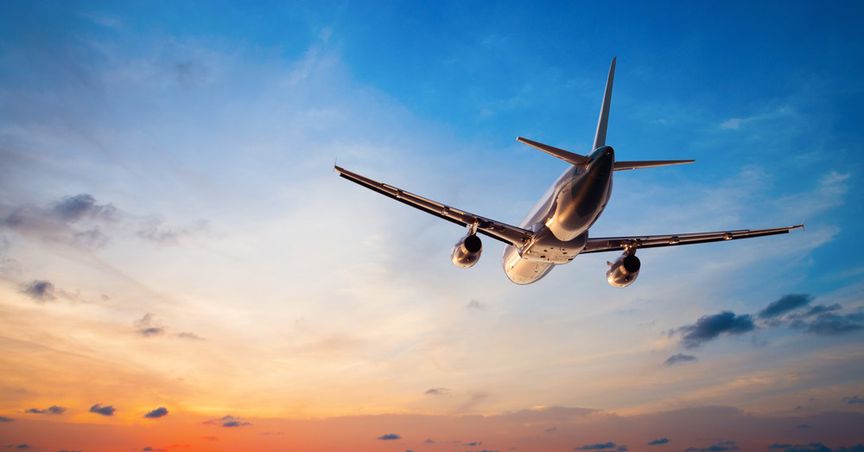Summary
- Amid the fears of a second wave of the coronavirus cases in the EU, Ryanair announced to decrease its flight capacity by 20 per cent for the months of September and October 2020.
- The airline plans to reduce the frequency of its flights instead of completely closing the affected routes, including France, Sweden, and Ireland.
- In order to facilitate a safe intra-EU air travel during the global pandemic, Ryanair believes that an efficient Covid-19 testing mechanism at the airports is required.
Amid a recent spike in the coronavirus infections in the European Union (EU), the UK government has enforced fresh quarantine rules for travellers, reducing the demand for air tickets. This move has prompted Ryanair Holdings plc to decrease its flight capacity by 20 per cent for the months of September and October 2020. On 17 August 2020, Ryanair informed that due to recent increase in the Covid-19 cases in some countries of EU, the company has recorded lower forward bookings in the past 10 days.
Given such uncertain situation Ryanair, known to be the Europe’s largest budget airline, planned to lessen the frequency of its flights instead of completely closing the affected routes. The airline said that it would especially focus on the trips to Spain, France, Sweden, and Ireland.
The recent rise in the infections reported in first three countries mentioned above has led to increased travel restrictions. Ireland has continued with its uniquely restrictive Green List. According to the provisions of this list, Ireland has imposed 14-day quarantine on visitors from most other EU countries, including Germany and the UK, which have lesser case rates over the past 14 days in comparison to itself. In order to facilitate a safe intra-EU air travel and curb the spread of the coronavirus infections during the global pandemic, Ryanair believed that efficient Covid-19 testing mechanism at the airports are required. In addition, an effective tracing procedure, similar to what is being followed in Germany and Italy, could potentially act as a realistic and proportionate way of controlling the pandemic.
Also read: Which Sectors One Should Be Cautious of In Second Wave of Coronavirus?
Also read: Companies Should Devise A Plan To Counter Second Wave Of Infections: Alert From The PM
Stressing on the necessity to cut capacity and reduce frequency due to a dent in the bookings followed by quarantine restrictions in several European nations, Ryanair observed that business travel plans for the months of September and October 2020 have been impacted and it is required to cut on its flight frequencies in order to customise its capacities accordingly for the next couple of months. Ryanair had already notified all the effected passengers for September and advised them regarding their options, including ability to move flights and receive cash or voucher refunds according to the EU regulations. Ryanair planned to send similar communications to the affected passengers for October 2020, who are supposedly lesser than September 2020.
Some other decisions taken by Ryanair in recent times due to the coronavirus-led crisis
Though Ryanair did not put a specified number to the daily flight cancellations, some industry insiders suspected it to be around 300-350 on a daily basis. The airline had planned to fly approximately 70 per cent of its flights that it used to operate before the outbreak of the coronavirus infections. Generally, during its peak season, the airline used to operate around 2,500 daily flights. In August 2020, as a measure to recover from the slump of the coronavirus-led crisis that shut all flights during the lockdown, Ryanair had indicated to operate about 70 per cent of its normal capacity in September 2020. However, the airline had cautioned regarding the schedule being hurt by a second wave of Covid-19 cases, limiting the travel plans once again. The company also planned to let go around 3000 of its employees. In addition to the job cuts, the company had announced pay cuts for its staff, which was agreeable to the unions in order to save jobs. The airline had informed in July 2020 that it would shut its base at Frankfurt Hahn airport after German pilots rejected the pay cuts.
On 18 August 2020, at 13.13 PM, the company’s stock (LON:RYA) was trading at €11.32 up 4.14 per cent from its previous day’s close of €10.87. The 52-week low high range was recorded as 8.14 and 16.10. With a market capitalisation (Mcap) of £10,734.87 million, the stock provided a negative return on price, which was minus 27.17 per cent on a year to date (YTD) basis. The total volume of shares traded at the time of reporting was recorded at 372,316.
Opinions on recently announced travel restrictions and quarantine rules
After announcing 14-day quarantine rule for travelers returning from Spain, the UK government had removed France, the Netherlands, Malta and others from its list of safe countries for travel on 13 August 2020. The Foreign Office issued a warning regarding any non-essential travel to France, which has recently reported a 66 per cent rise in coronavirus cases. The move to be effective from 15 August 2020 is likely to affect approximately 100,000 British holidaymakers who were supposedly in France during that time, beside others who would plan to travel there later during summer season of 2020.
Several airline companies, including Airlines UK, one of the biggest carriers operating out of the UK, and other holiday firms feared that the sudden change to the quarantine rule for France would further hurt the industry, which is already facing an unprecedented crisis. Many companies anticipated that the move would also result in additional job cuts.
As a solution, several industry insiders requested the government to have an effective Covid-19 testing protocol at the airports in place of a strict quarantine rule. Many experts believe that such sudden decisions by the government act as a deterrent to the passenger confidence for booking a ticket and planning a holiday, besides diminishing the revenue of the airlines.
Also read: UK Insurers To See A Surge In Travel Insurance Policy Demand Post 31 Dec 2020
Also read: Covid-19 Impact: Economic Downturn of the Aviation Industry
The travel association ABTA, (previously known as Association of British Travel Agents) feared in absence of government help, there could be an increase in job losses. Talking specifically about Spain and France, considered as two biggest holiday hotspots for the Britishers during summer season, ABTA said that during the time when the country is facing a down turn, a concrete plan is required to protect around 221,000 jobs that the travel industry provides. On the other hand, the World Travel & Tourism Council observed that instead of providing better measures for testing to check the spread of the infectious disease, the UK lagged behind other countries in imposing quarantine norms. The council further highlighted that there is no denying that public health needs to be prioritised, but such decisions would lower the little confidence that the travel and tourism sector built after easing the restrictions.
The consumer association Which? emphasised that due to the latest restriction, many people are expected to lose their money, in case some airlines denied issuing refunds if outbound flights continued operating. Grant Shapps, the transport secretary, however, guarded the government’s decisions and stressed that the it needs to act, given the spike in Covid-19 cases in some countries. Saying that there is no sure shot way to do this, Shapps commented that travelers have planned their trips despite being aware of the risk, besides many would have changed their plans or are already back in the country.
Covid-19 crisis: A look at some other airlines
Since the outbreak of the coronavirus pandemic that led to a complete shutdown of flights, the entire aviation industry is reeling under pressure of financial losses. Though the ease in travel restrictions brought a slight gleam of hope to recover from the unprecedented crisis, the recent restrictions and quarantine norms have brought addition pressure on the airline companies. Given a low consumer confidence amid the fears of catching an infection and confusion surrounding the sudden change of rules by the government, many airlines are compelled to shut their bases, cut on flight schedules, and lower its capacities.
Also read: Two Airline Stocks Trending on LSE: International Consolidated Airlines Group SA & Easyjet PLC
Also read: Covid Impact: Aviation Industry Workers Undergoing Massive Job Losses
EasyJet plc, a British low-cost airline group headquartered at London Luton Airport recently announced that it would close its three bases in the UK, including London Stansted, Southend, and Newcastle by the end of August 2020. The closure would impact around 670 jobs from the airline. The company however informed that its discussions with the airline unions, offer of voluntary redundancy, and transfers have resulted in decreasing the number of compulsory redundancies. Due to the coronavirus-led crisis, EasyJet could see additional 1,200 job cuts in the UK. It is to be recalled that in May 2020, the airline had stated that it wanted to cut some 4500 jobs. It is to be noted that the company is yet to start consultation with its workforce in other European countries.
In June 2020, Easyjet started deliberations regarding its plans to close the hubs. Approximately 93 per cent of the crew members facing the risk of redundancy at these bases chose voluntary redundancy. It is to be known that the crew would receive more money from the enhanced voluntary package in comparison to the benefits that they would get from compulsory redundancy.
British Airways has begun clearing out its fleet of Boeing 747, which were grounded since March 2020 due to a complete ban on travelling. The airline planned to part with around 12,000 jobs, out of total workforce strength of 42,000. British Airways also informed that approximately 6,000 staff has volunteered for redundancy.
In July 2020, Emirates, the Dubai-based airline pronounced that it could let go off around 9,000 of its employees. Besides these airline companies, in June 2020, Airbus, the company that manufactures airplanes planned to off role as many as 15,000 of its people. Rolls Royce, the company that produces aero-engines also declared that it would cut nearly 8000 jobs.
Conclusion
Beside holiday plans, strong air connectivity is crucial for economic and sustainable development of a country in normal times also. Given the economic crisis brought by the global pandemic, it becomes all the more important to restart safe air journeys to help revive the economies. While experts agree that governments should work on efficient testing mechanism at the airport to check the spread of the Covid-19 infections, many suggest that testing should be carried out before arrival and upon arrival to put the records in the track and trace systems. Instead of imposing a strict quarantine rule that affects the consumer confidence as well as business prospects of the industry at large, the airline industry needs to coordinate with the government authorities towards decreasing the risk of imported cases via travelers and probability of transmission during the air journey. This would augment the government’s confidence to open the borders without imposing quarantine norms, besides boosting the confidence of passengers to board the flight, ultimately supporting the industry and protecting the jobs.





